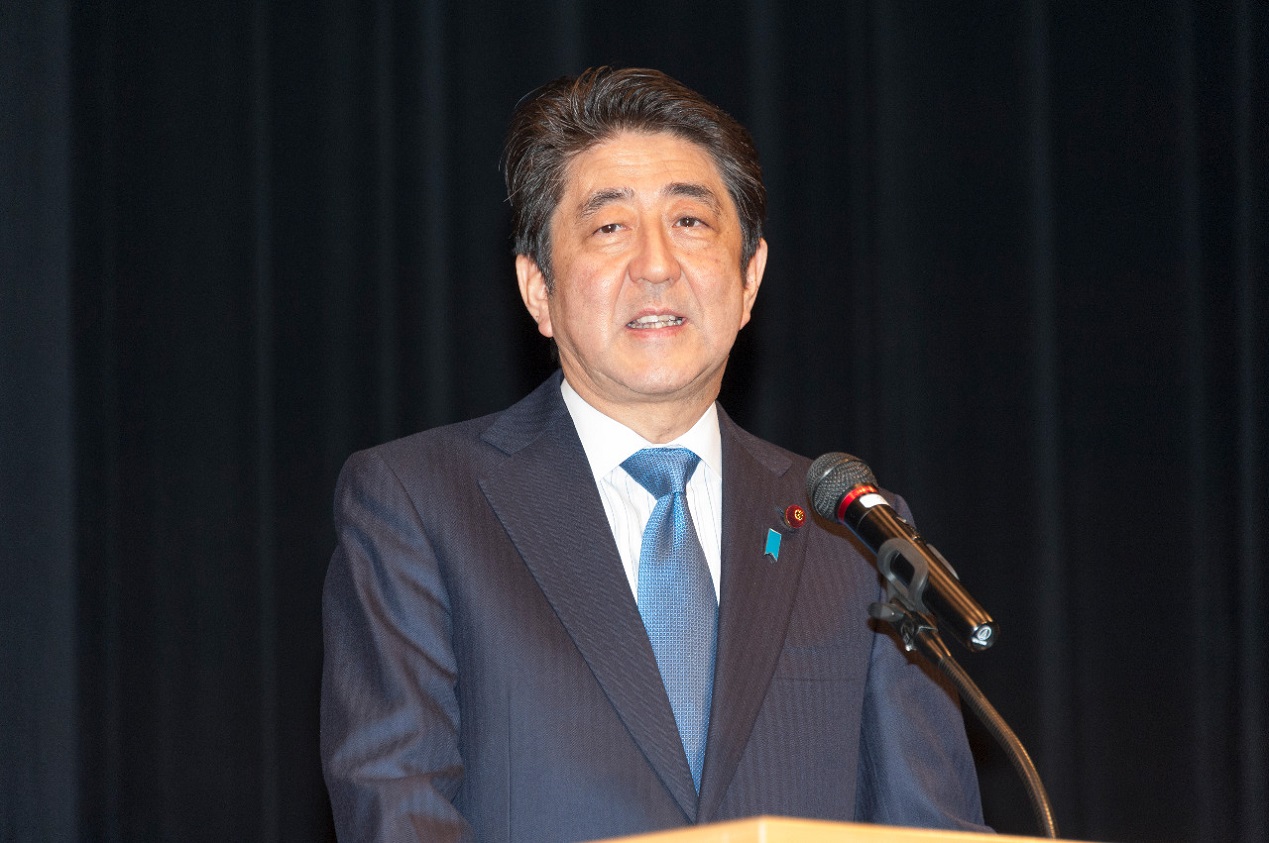The morning on 8 July began with the devastating news that the former Prime Minister of Japan Abe Shinzo, a true friend of India with whom the author had a chance to briefly interact at the India International Centre as a member in August 2007 when he visited India during his first term as Prime Minister and for who was greatly admired, was shot while delivering a speech ahead of the Upper House elections on 10 July. He was shot twice from behind and collapsed on the ground immediately. Abe was speaking near Yamato-Saidaiji Station at a rally in preparation of the elections. Though the initial reports said that Abe was in a state of cardiopulmonary arrest, it soon transpired that he had succumbed to the gunshot wounds at the Nara Medical University Hospital, where he was rushed to after the incident.
The Chief Cabinet Secretary Hirtozaku Matsnuo in a press conference strongly opposed the violent behaviour of the assailant, which he deemed completely unacceptable. As head of a faction of the majority Liberal Democratic Party (LDP), Abe was scheduled to participate in several allies to show support for LDP members running in the election. Prime Minister Fumio Kishida called the attack “despicable”, “barbaric” and “malicious”. Nobuo Kishi, Japan's minister of defence and the younger brother of Abe, said that the hospital in Nara where Abe was transported to was working hard to save his life, including by carrying out blood transfusions. As it transpired in few hours, all such efforts proved futile and Abe was announced dead. It was probably Abe died on the spot but medical protocol led to the delay in the announcement. Similar thing happened when the then Prime Minister of India Indira Gandhi was killed by her bodyguards in October 1984.
The suspect was arrested immediately and the 40cm-long weapon wrapped with black tape seized. He did not resist escaping. Identified as Tatsuya Yamagami, 41-year-old from Nara-ken, he is currently under charge of attempted murder. He hailed from Tsu, the capital of Mie Prefecture and was visiting Nara for sightseeing purposes but had other hidden agenda. Yamagami told police he was dissatisfied with the former leader and that he "aimed to kill." There could be more than this, not simple confession.
Though the exact reason to kill Abe shall take some time to decipher, initial beliefs, as mentioned to me by my young Japanese friend from Tokyo hours after the incident, was that Yamagami wanted to kill a famous person by his handmade gun. Further, some new information surfaced suggesting that Yamagami had some resentment against a certain cult and thought that Abe had relationship with the cult.
Yamagami is a former Self-Defense Force employee, who worked for the MSDF for three years until about 2005. Since gun-related crimes are extremely rare in Japan unlike in the US, due to stringent gun control regulations, and therefore political rallies are normally held with low security, it is now the responsibility of the police to investigate how a person could carry a weapon to a political rally and all other speculations.
After firing the two gunshots, the man remained silent and did not runaway or fight. It was a handmade gun having a long cartridge and shape that required two hands to hold. Normally defence personnel are not trained with short guns. The pallets when released upon firing normally spreads within some width range but it did not happen so as all the bullets were released on Abe. This indicates that the man was either trained by himself or some external actor had rendered the training to fire from a shotgun. These are issues for the police and the investigating agencies to look into.
When police raided his residence, it was found that there were “several handmade gun-like items” in Yamagami’s possession. The question that arises is how was that possible? Preliminary inquiry and interrogation by the police revealed that some parts were bought online and assembled by Yamagami himself. Further question arise: where did he test the weapon? Since he was staying in an apartment building, how the neighbours never suspected such things going on in the apartment building? It is true that Japan is extremely an individualistic society and there is little interference in another person’s personal life. Since such a dangerous activity was going on for some time in the building without anyone taking notice of it, it reflects a malaise of Japan’s modern society and thus a societal problem. Unlike in India when such things happen and when police nabs the suspect and seeks help from the public, generally it is given. But it is a fact that police in Japan does not get support from the people when chasing a suspect in a crime. The author is witness to the police chasing an Iranian after robbing the cashier of a restaurant in 1993 in the crowded Shinjuku subway station but the suspect made an easy escape as the multitude of people were indifferent of what was happening before their eyes. Had it happened, for example, in India, the people could have easily caught the robber and handed over to the police to deal according to the law. Yamagami’s case is an example that should serve as a lesson for the people in general to be more pro-active in such incidents and render the needed cooperation to the law enforcing authority.
Lapses in Police Security
It is sad reflection on policing in Japan that police officers on duty at the venue did not recognise a suspicious man in the crowd carrying a weapon until hearing the first gunshot. It is possible that political assassination of important leaders is something unimaginable in Japan as the country is basically law-abiding and individualistic. Even small time anti-government rallies that are policy-related do not have any police presence. The author is witness for some such anti-nuclear rallies in 2014 near famous universities in Tokyo caricaturing Abe as modern Hitler as he was seen to be favouring nuclear power during the post-Fukushima years. There were no police presence whatsoever and the protests were peaceful. Against such culture that exists in Japan, it is possible that the police do its work to be present near high-profile leaders as a routine duty. But such laxity allowed Yamagami to execute his plan as he wanted.
With the tragic incident now, and considering the circumstances of the crime scene, the National Police Agency now plans to review the security arrangements for former prime ministers as well as leading political figures. Had the police been alert, probably the incident that took away Abe’s life could have been averted. Clearly, police arrangements made for patrolling the area behind where Abe was speaking could have been better. The assailant carrying such a weapon should have been prevented from getting anywhere near Abe. Regrettably, police failed to do so. Calling the assassination as an act of “inexcusable barbarism”, Nara police head Kazuo Ohashi admitted there was lapse in security and thus needed thorough scrutiny. Though it would be inappropriate to speculate about the assassination at the moment, there is no denying the fact that several loose ends needed to be tightened.
Initial interrogation revealed that Yamagami held a grudge against an ‘organisation’ to which Abe was connected. Though there is no clarity on what that particular organisation is as investigation is underway, media outlets described it as a religious group. It is also revealed that his mother made a huge donation to the leader of the religious group, which angered Yamagami and thus decided to take revenge against Abe for his mother’s financial ruin. According to the NHK, Yamagami even considered a bomb attack before opting for a gun. During his three year with the MSDF, he had trained with live ammunition and learnt breakdowns and maintenance of guns. Even army soldiers serving for a long time rarely know how to make guns but Yamagami had acquired the skills to assemble parts and improvise making guns.
Reactions
Abe’s killing sent shockwaves throughout the world as he was a popular leader both at home and abroad. Foreign dignitaries and foreign policy community reacted with shock, condemnation, prayers and an outpouring of support. Abe was Japan’s youngest and longest-serving Prime Minister. Other political leaders also joined Matsuno in expressing strong condemnation of the incident and their opposition to violence. Prime Minister of Australia Anthony Albanese twitted that Australia’s “thoughts are with his family and the people of Japan at this time”. Polish Ambassador to Japan was too shocked and said Abe was a wonderful friend of Poland. The US ambassador to Japan Rahm Emanuel was “saddened and shocked”. Abe was an unwavering ally of the US and the shock was understandable. The Spanish embassy in Tokyo, British ambassador in Tokyo, Taiwanese President Tsai Ing-wen among others expressed shock.
Joining the global condemnation, Prime Minister Narendra Modi took to Twitter and said, "Deeply distressed by the attack on my dear friend Abe Shinzo. Our thoughts and prayers are with him, his family, and the people of Japan." Both leaders have met with each other multiple times and PM Modi regards Abe as his "most dependable and valuable friend".
One has heard such political assassinations in South Asian countries – India, Bangladesh, Nepal, Pakistan and Bangladesh but it was inconceivable for such a thing to happen in a peaceful nation like Japan where none of the factors that led to assassination of leaders in South Asia exist in Japan. This sneaky brutality taking place during election times was an assault on democracy and cannot be condoned by any measure. “The world is quite in turmoil”, as my friend rightly put it when informed about the attack on Abe.
Whenever such incidents take place, conspiracy theories soon do the round. Taking into account the external factors, such possibilities too cannot be ruled out. The questions that beg answers are many. Why was Abe chosen as the target? It is possible that Abe was a soft target with the objective to send a larger message to the political leadership in Japan and beyond that the gun culture and political violence have made an entry into Japan. Did Abe err ever in any front? The author does not find any blemish in Abe’s long tenure. Was there any external influencer that led to Yamagami to act the way he did? There are some indicators that point to some merit to such suspicion.
This suspicion stems from the way China’s mouthpiece, the Global Times, started rejoicing after Abe’s killing. Demonstrating immense immaturity, insensitiveness and crossing boundary of all niceties and civilised norms, it took a swipe at Abenomics at a time when Japan and the world is in sorrow. Abenomics was a comprehensive policy package unveiled by Abe and his government in 2012 to revive the Japanese economy after two decades of deflation while maintaining fiscal discipline. By mentioning that anti-Abe sentiments always existed in Japan, the newspaper was only fuelling tensions that exist between the two countries. Giving an ugly political overtone, the paper observed Abe’s killing can be a suitable alibi to facilitate NATO’s entry into East Asia. This is a nonsensical argument at a time of a crisis of colossus proportion that Japan faces at the moment. An unnamed expert elaborated: "Right-wing forces in Japan may become more active and tout war again amid the economic downturn, social divisions. The attack on Abe may accelerate the revision of pacifist constitution, and cause a ripple effect to foreign policy, like ties with China and the US. Chinese nationalists started celebrating the assassination and termed the attacker as a “hero”.
It is now the task for the police and investigating agencies to probe all aspects of the assassination, including a possible Chinese hand or if Yamagami was just a sole disgruntled element who acted on his own and wanted to either get some cheap publicity or earn some dark space in the history like that of Nathuram Godse or Harvey Oswald.
India lost a true friend and the nation mourns. However, Abe’s departure shall in no way affect or undermine India-Japan bilateral relations. The foundation laid by Abe and Modi is already robust and bilateral ties shall continue to blossom even in the future. Abe’s inspiration shall remain relevant in the future as it has been in the past. The legacy that Abe has left and how the world shall work based on the roadmap developed by Abe shall be discussed at length in Part II of the article. (To be concluded)
(The paper is the author’s individual scholastic articulation. The author certifies that the article/paper is original in content, unpublished and it has not been submitted for publication/web upload elsewhere, and that the facts and figures quoted are duly referenced, as needed, and are believed to be correct). (The paper does not necessarily represent the organisational stance... More >>










Post new comment